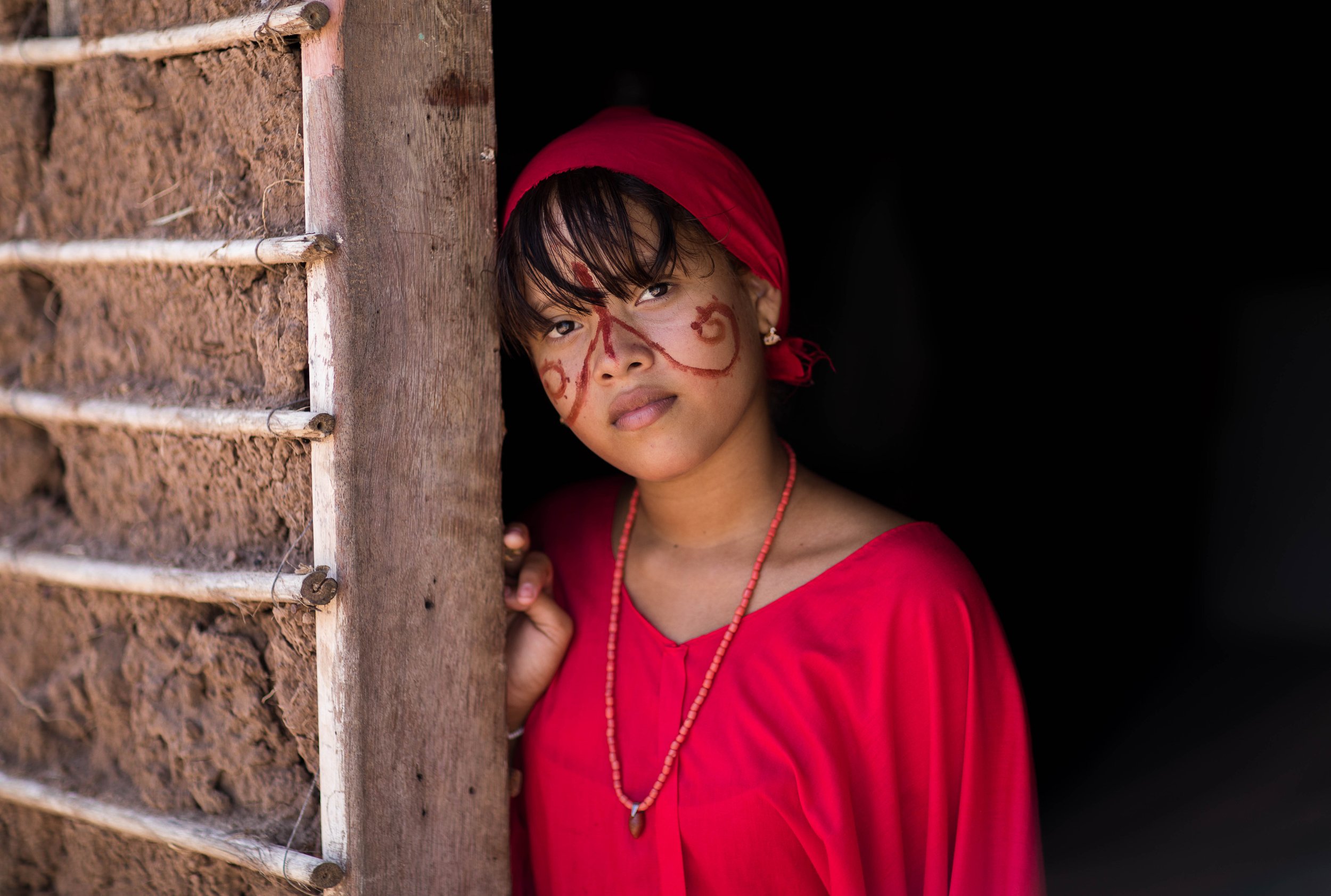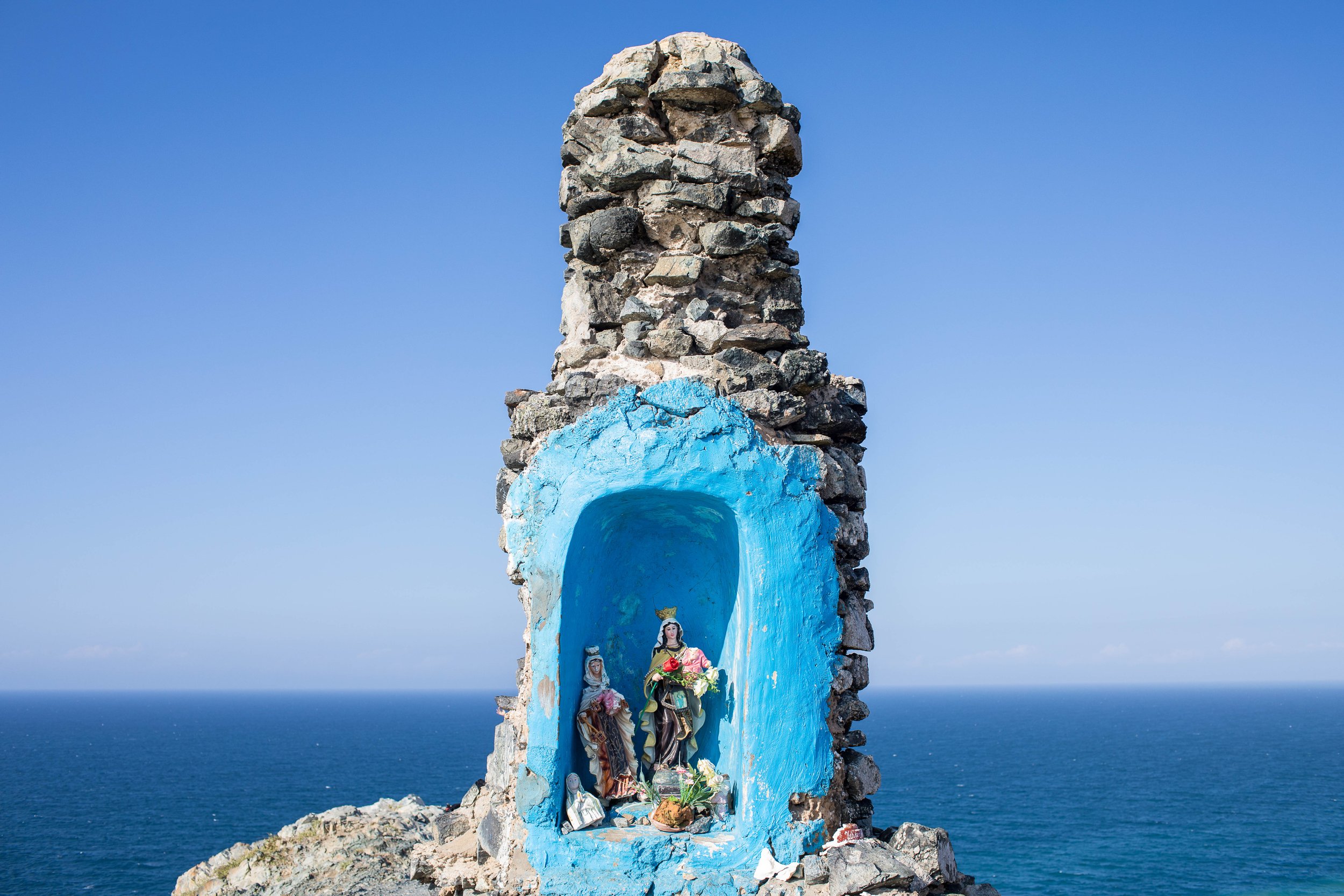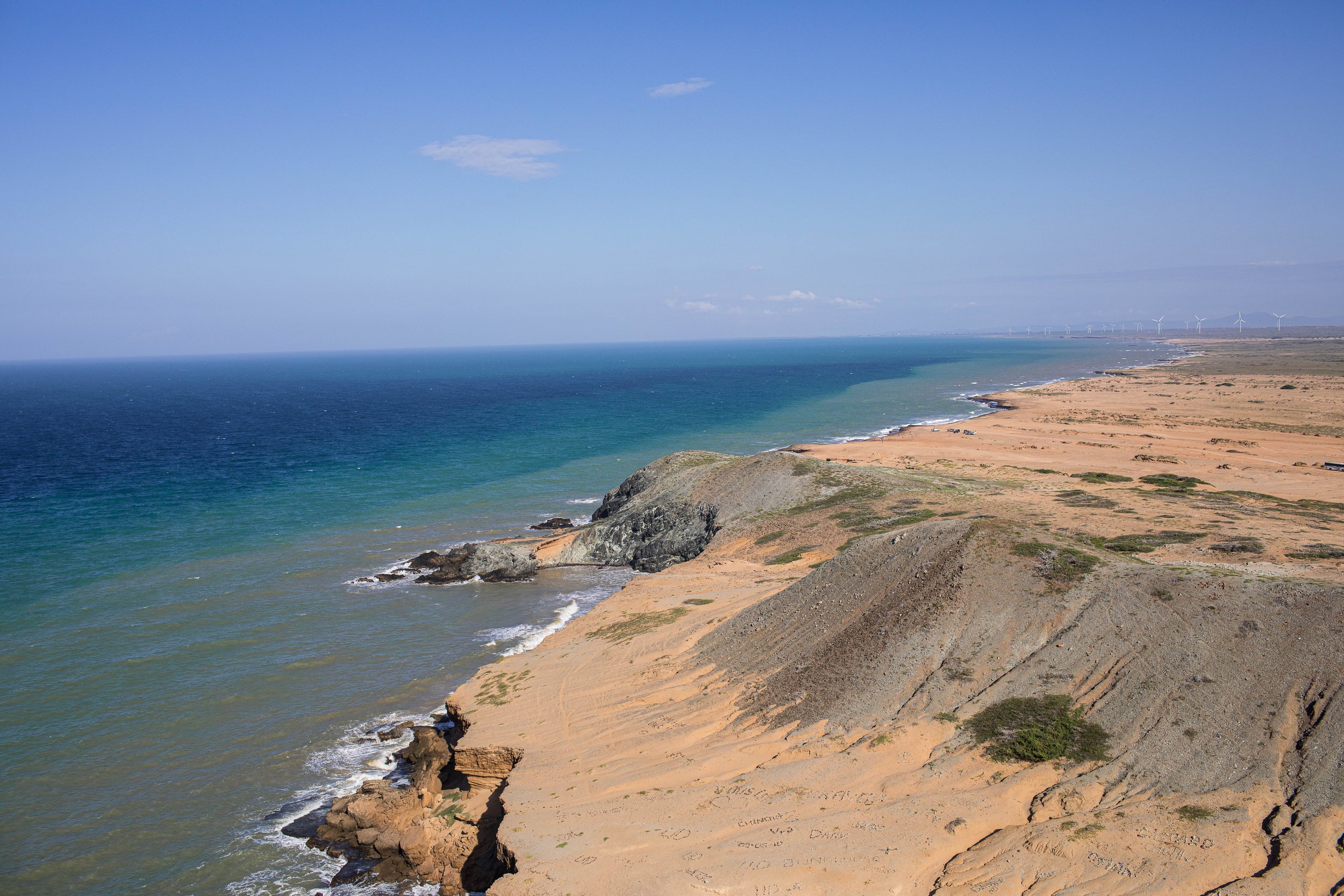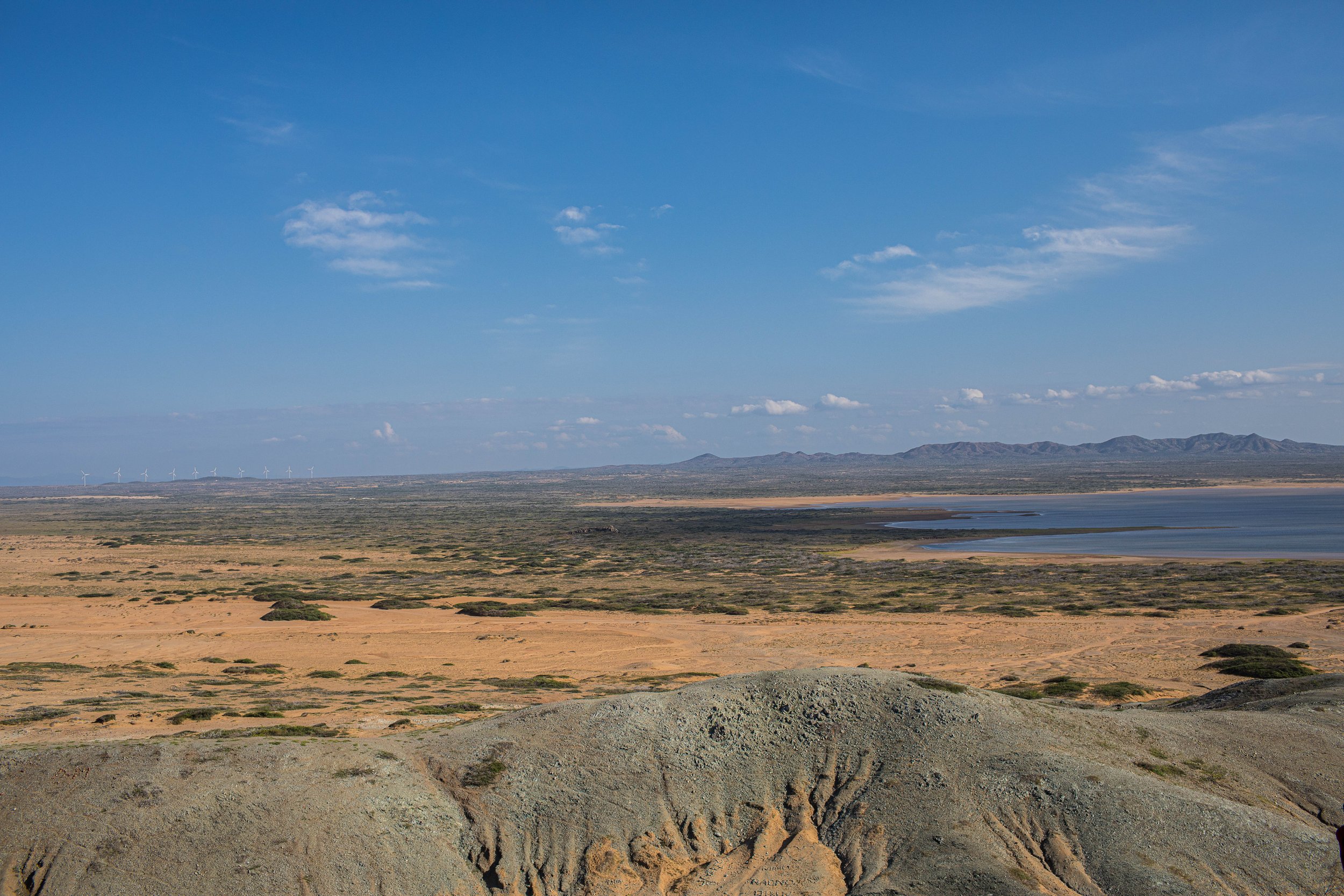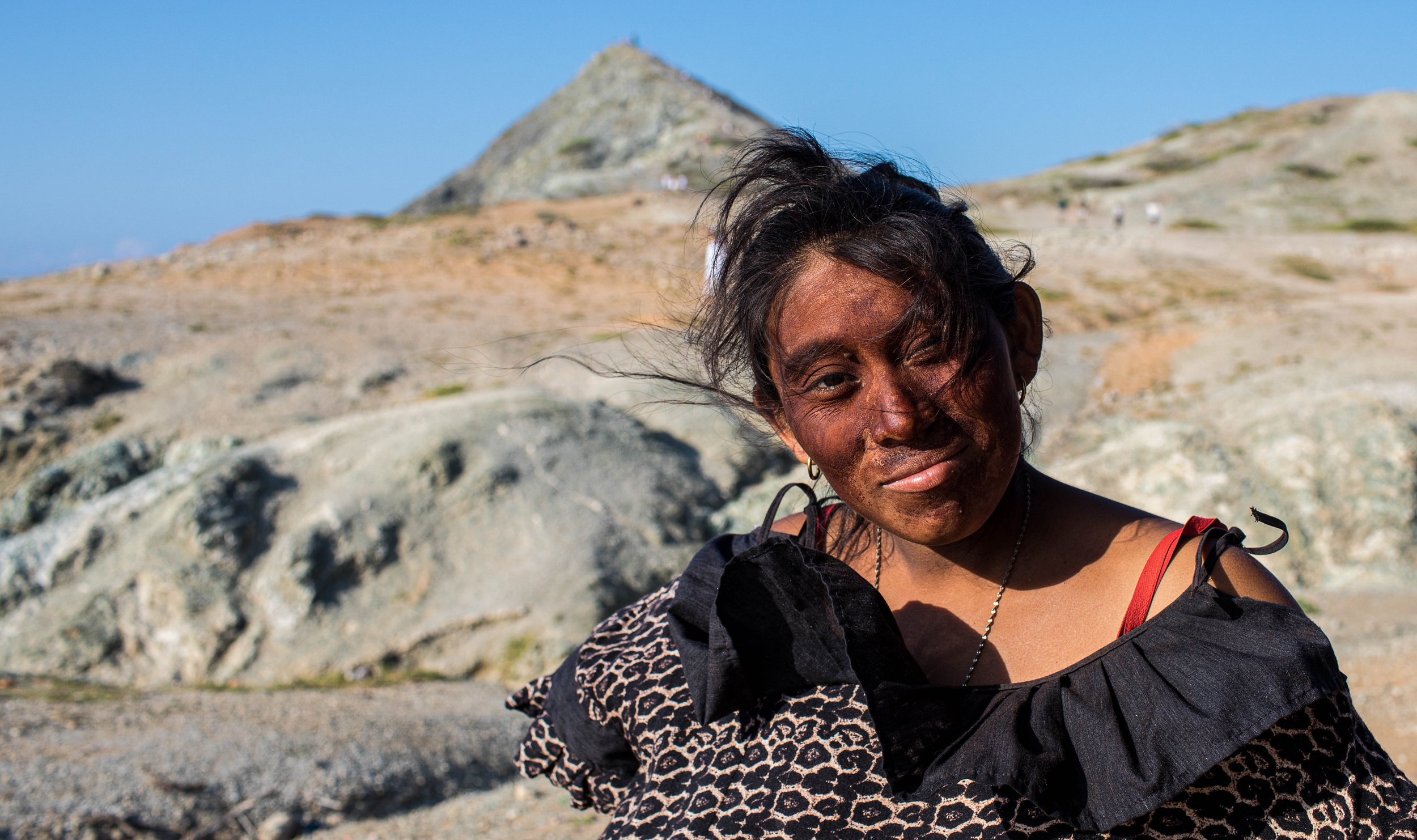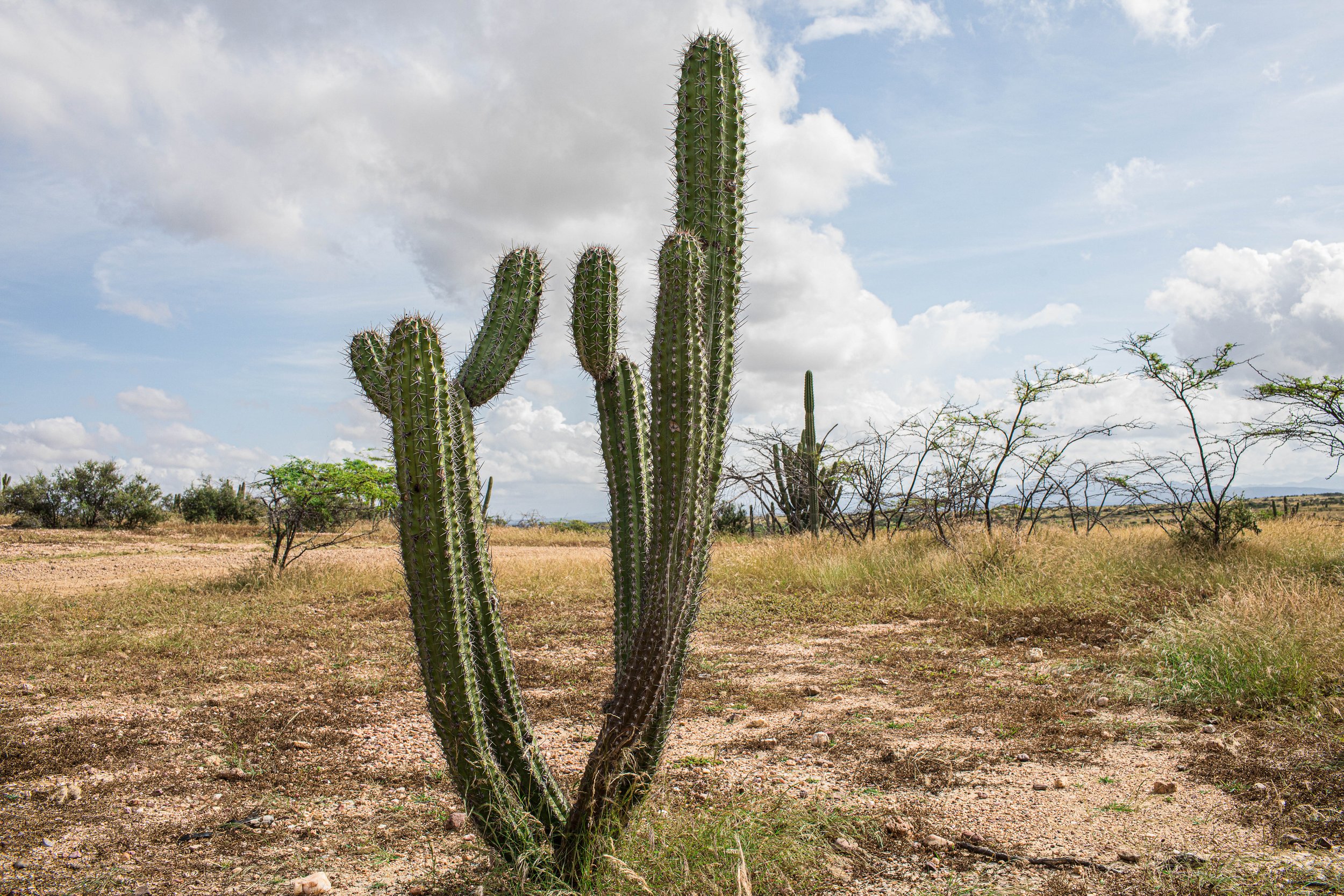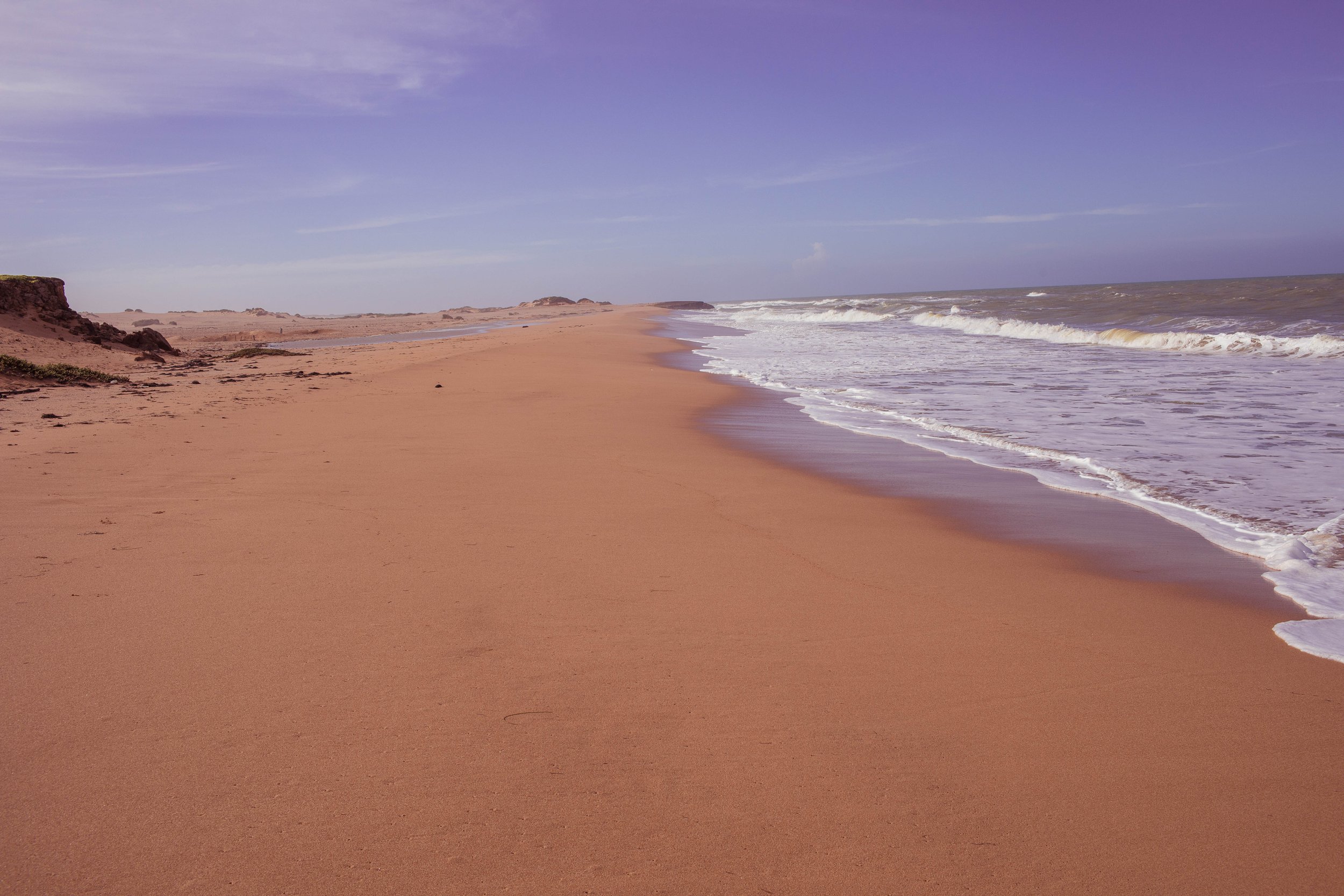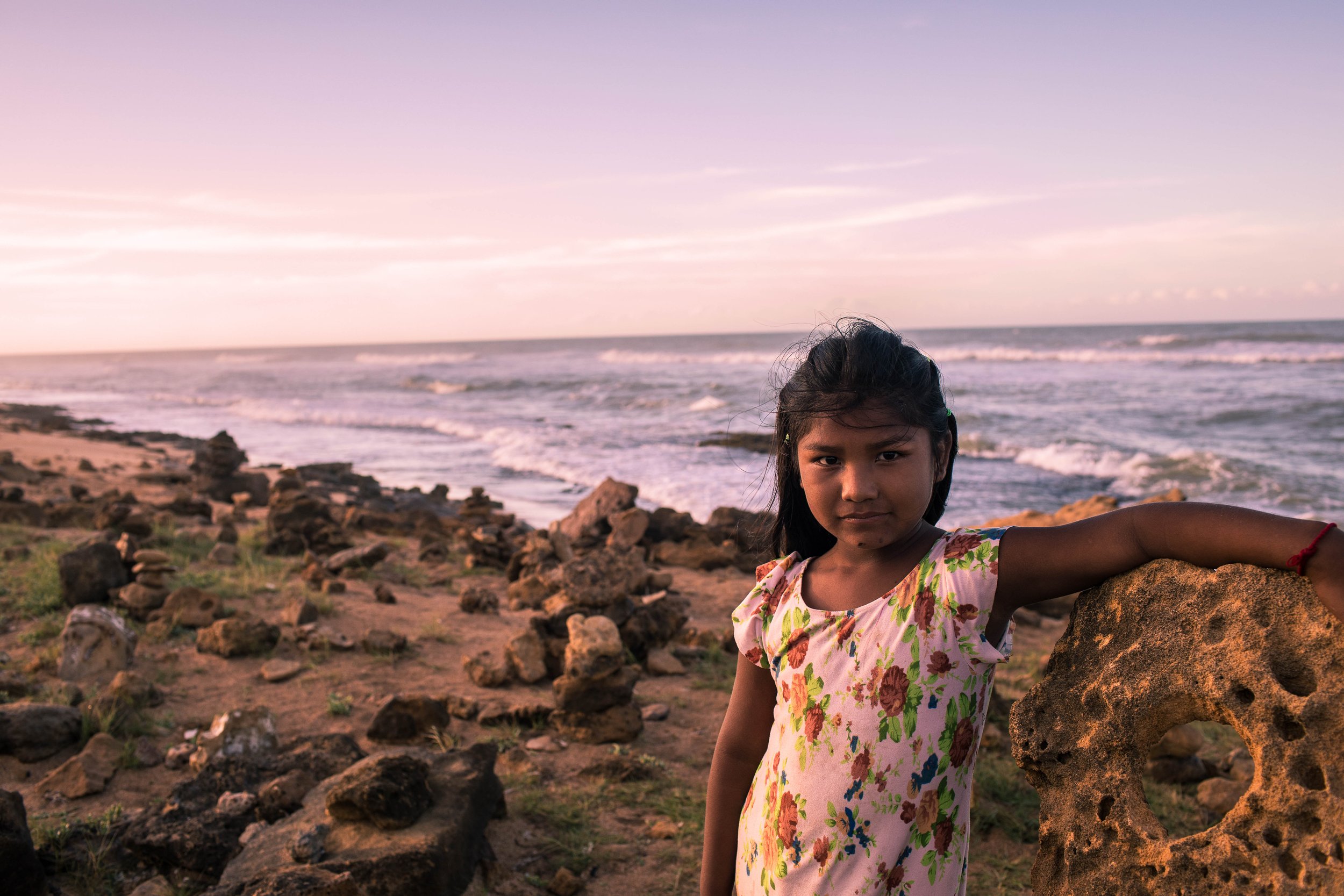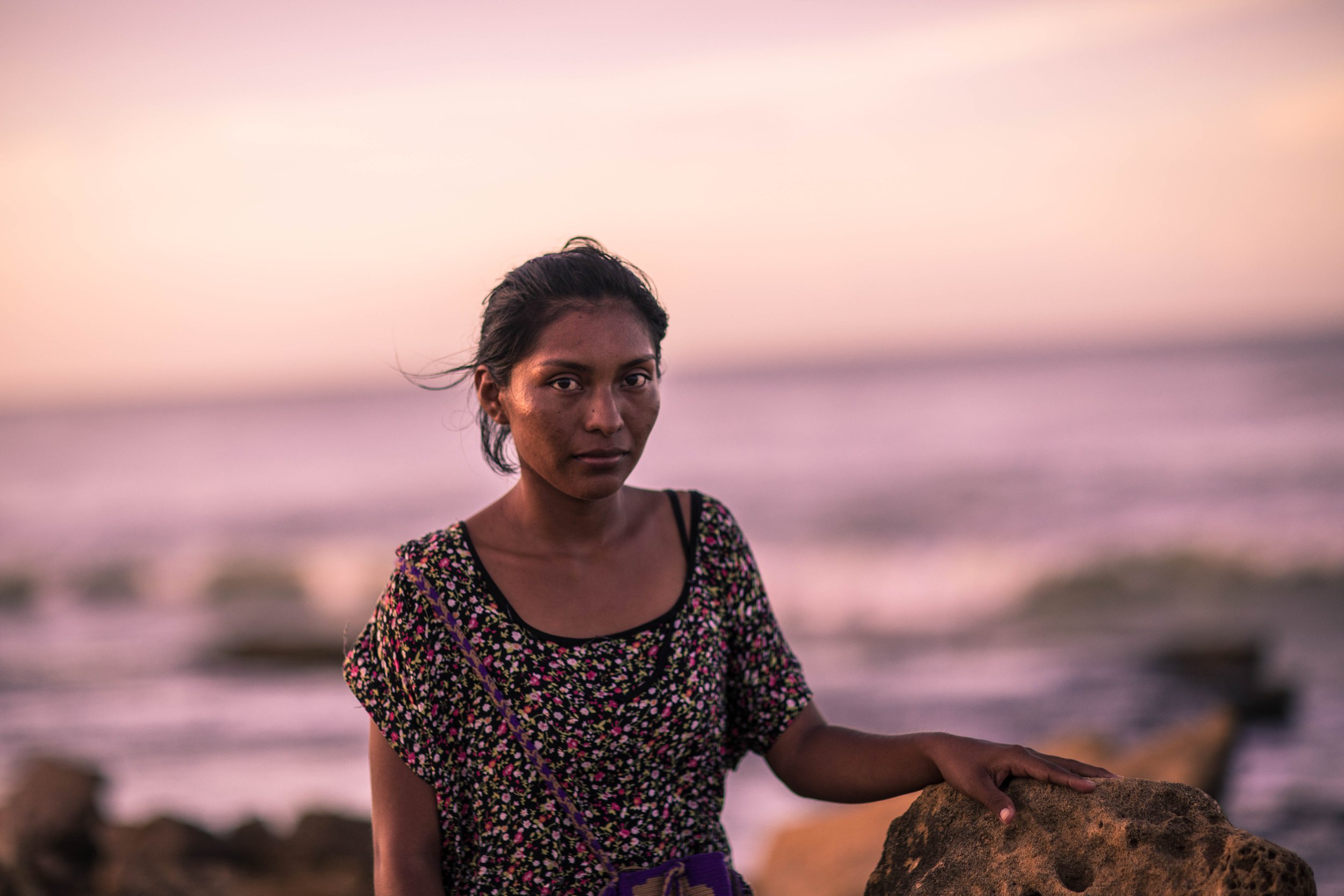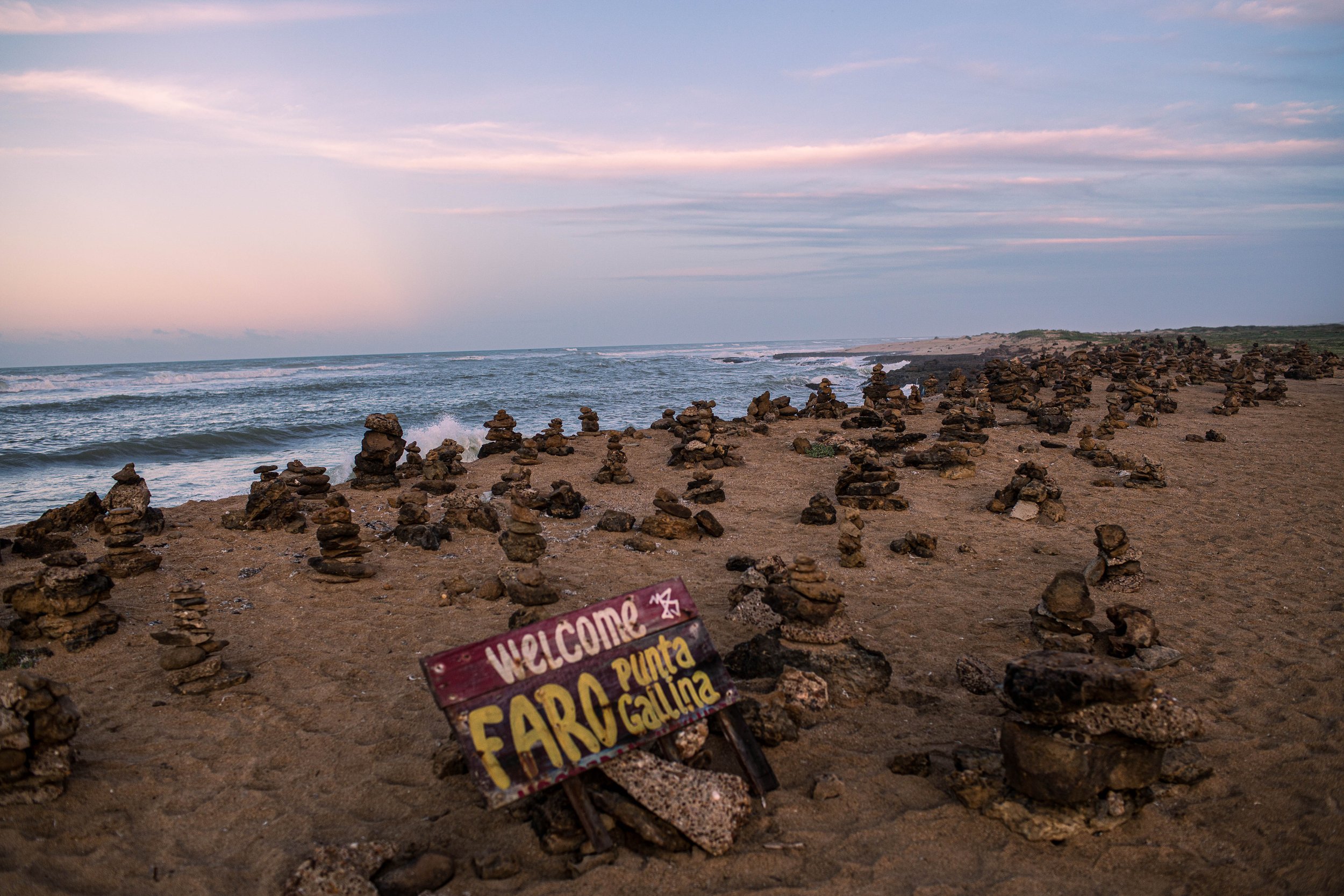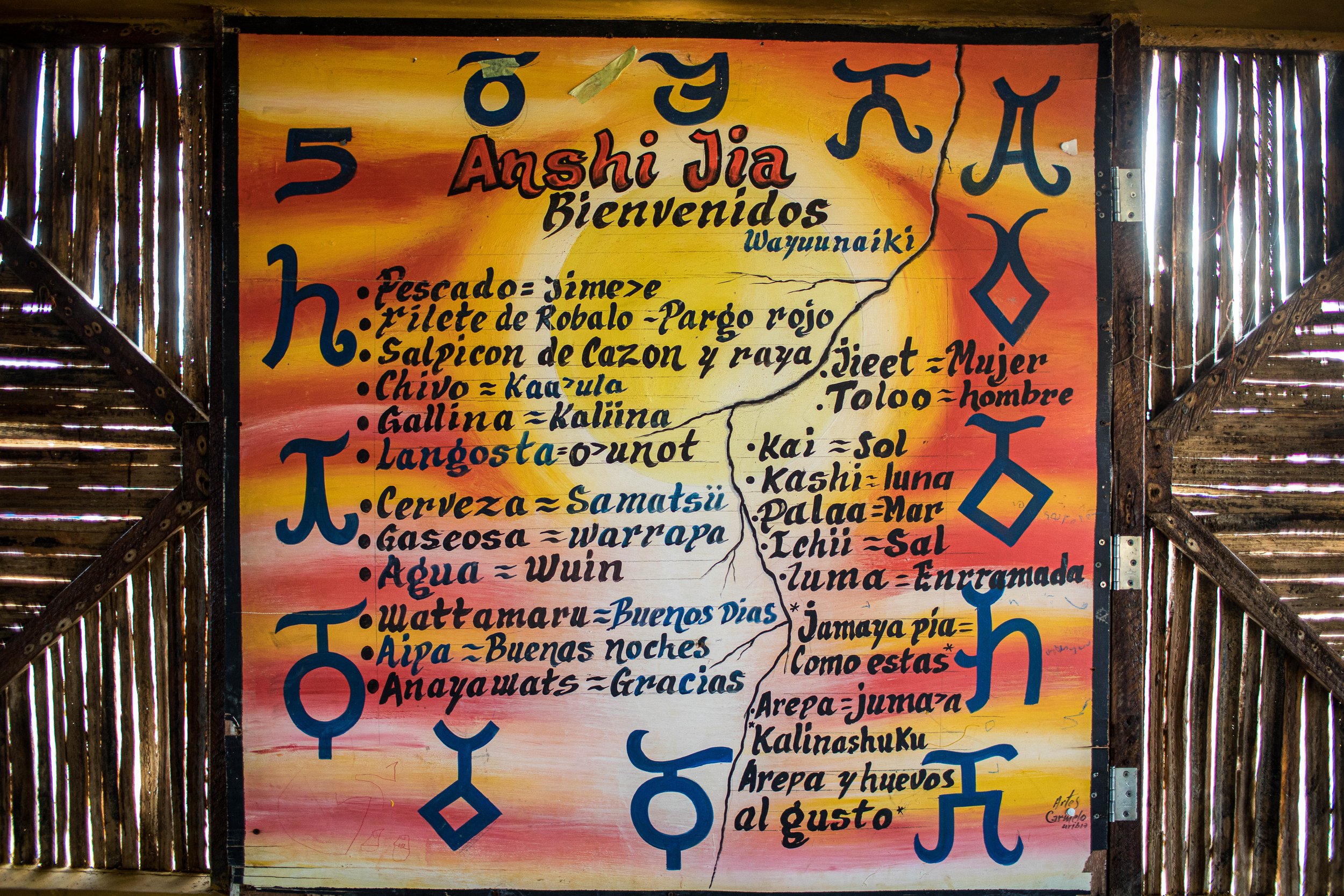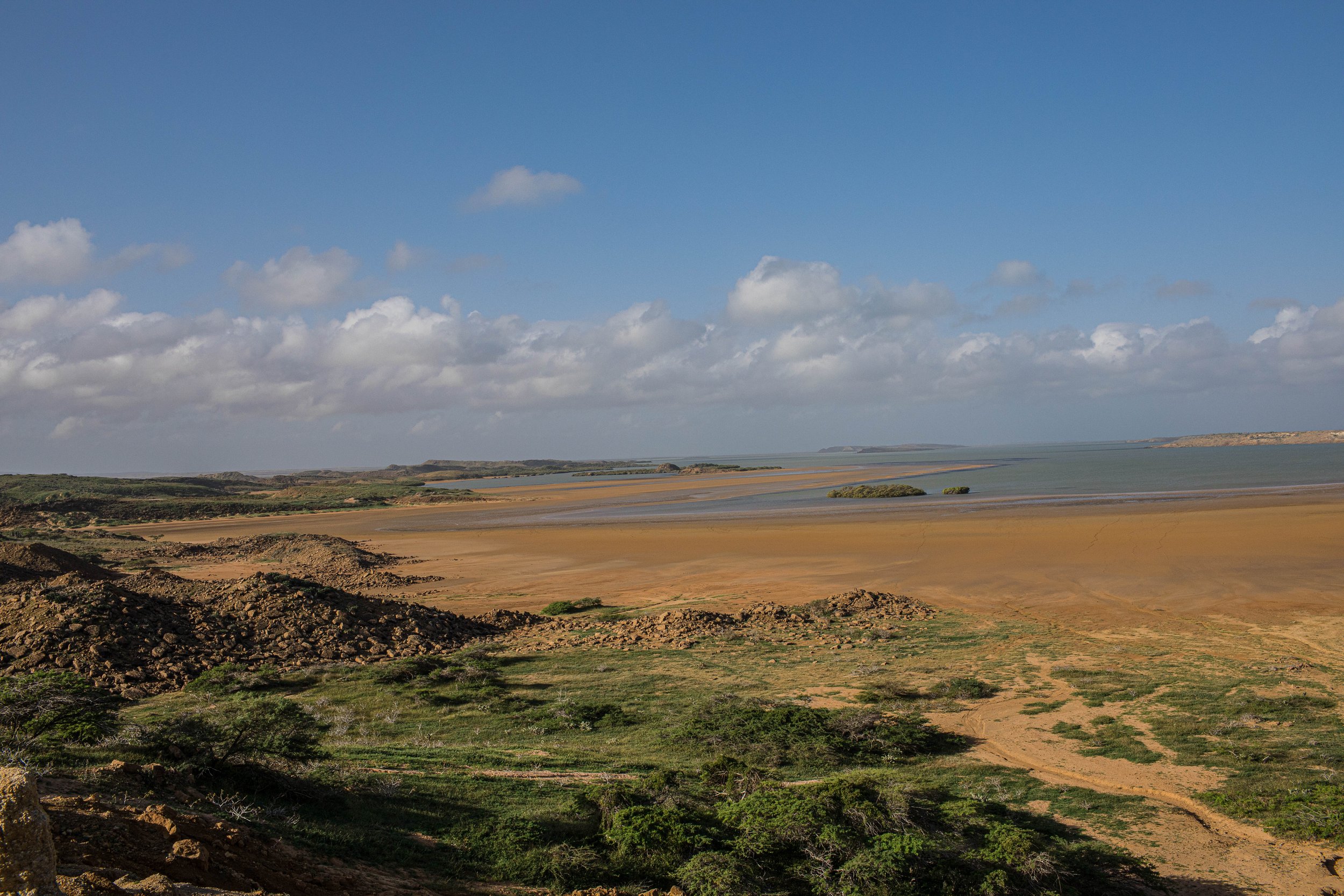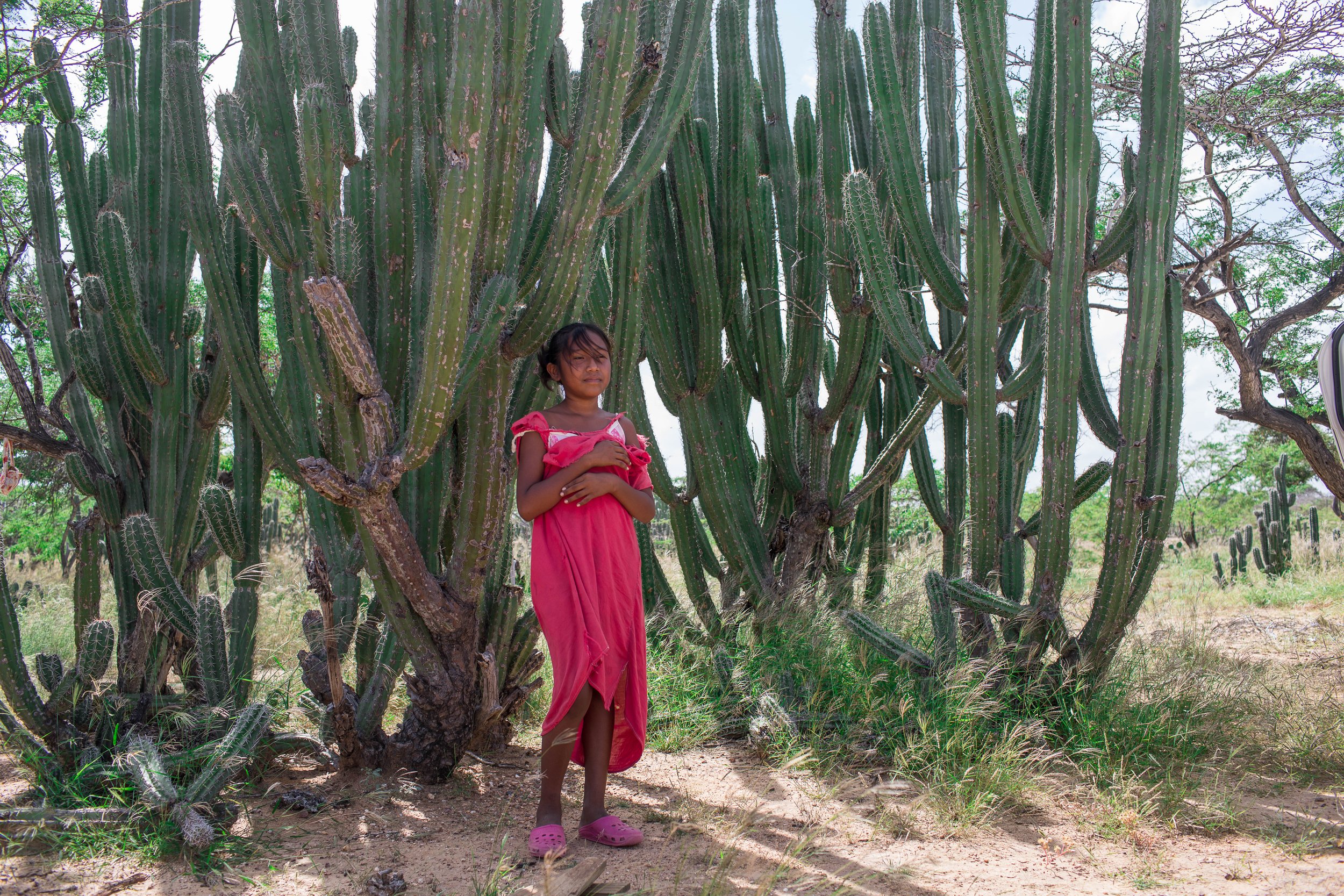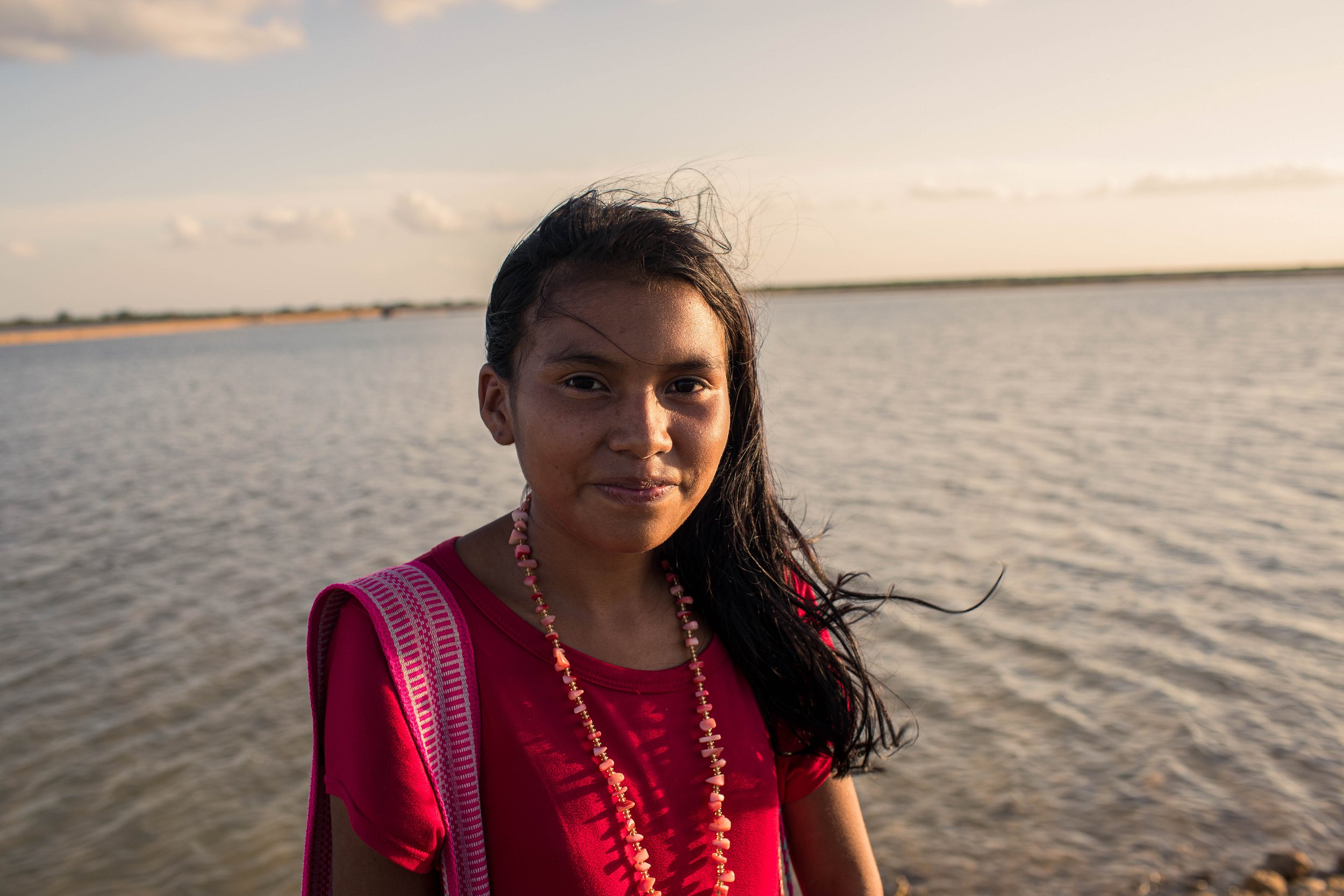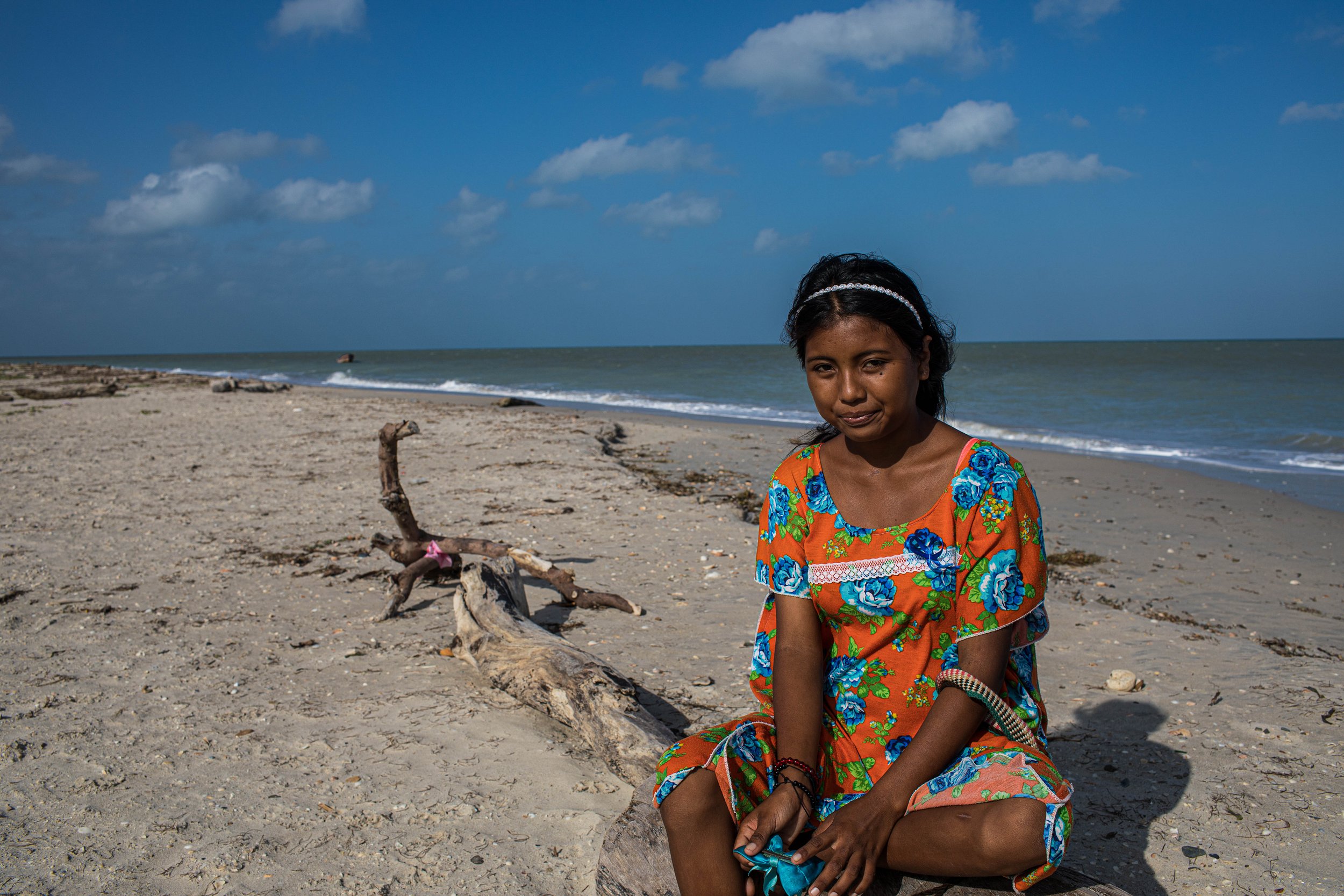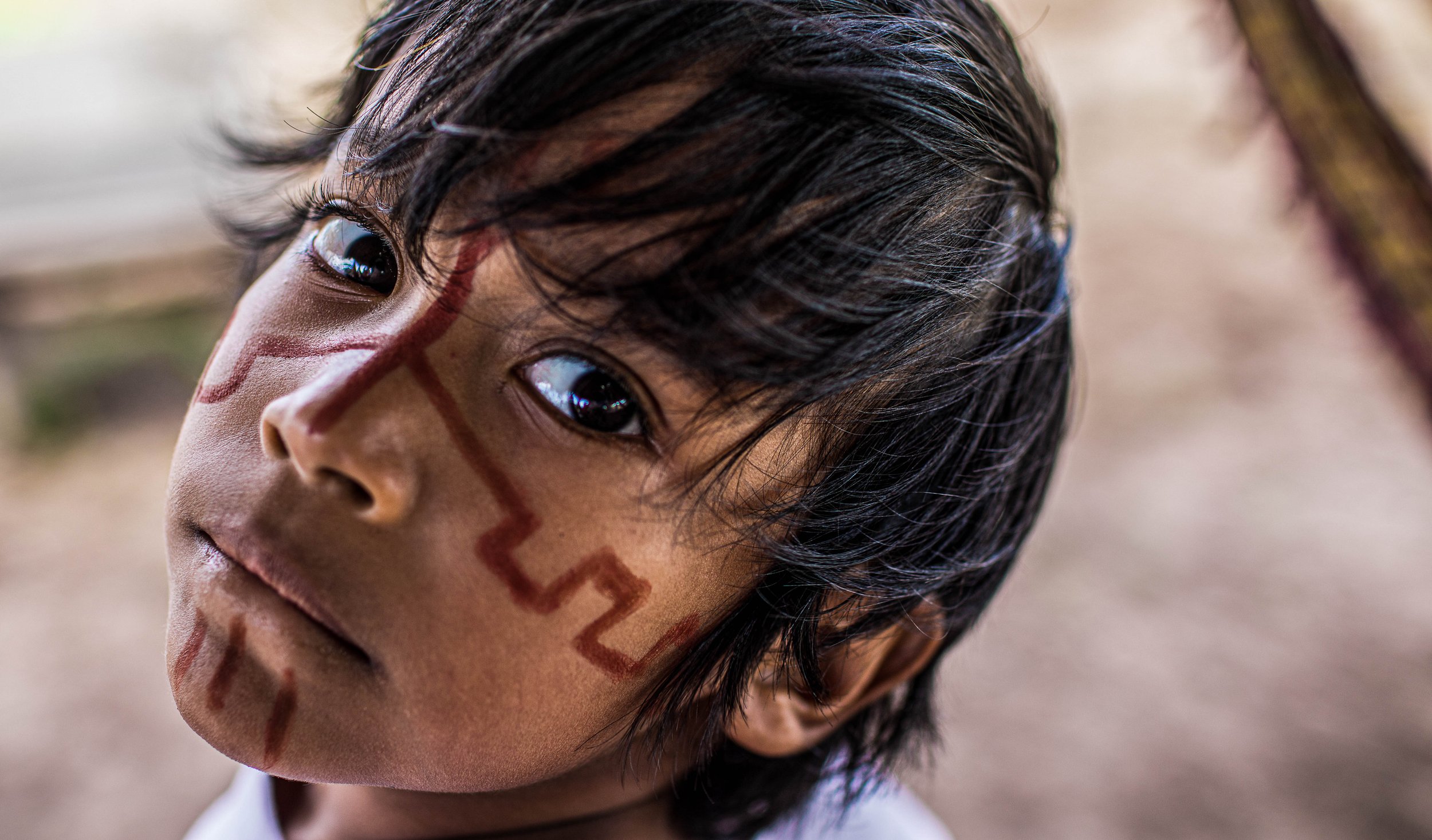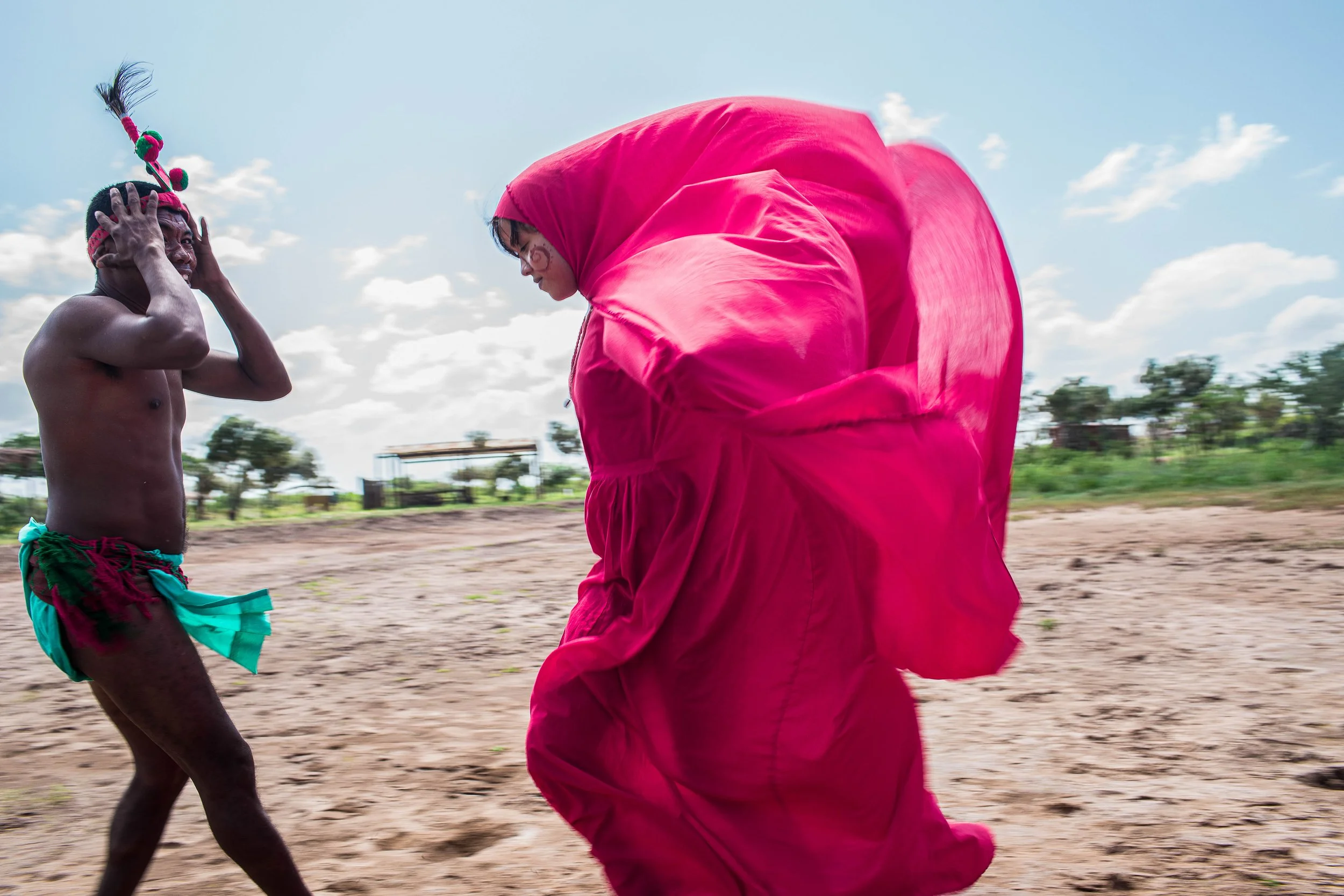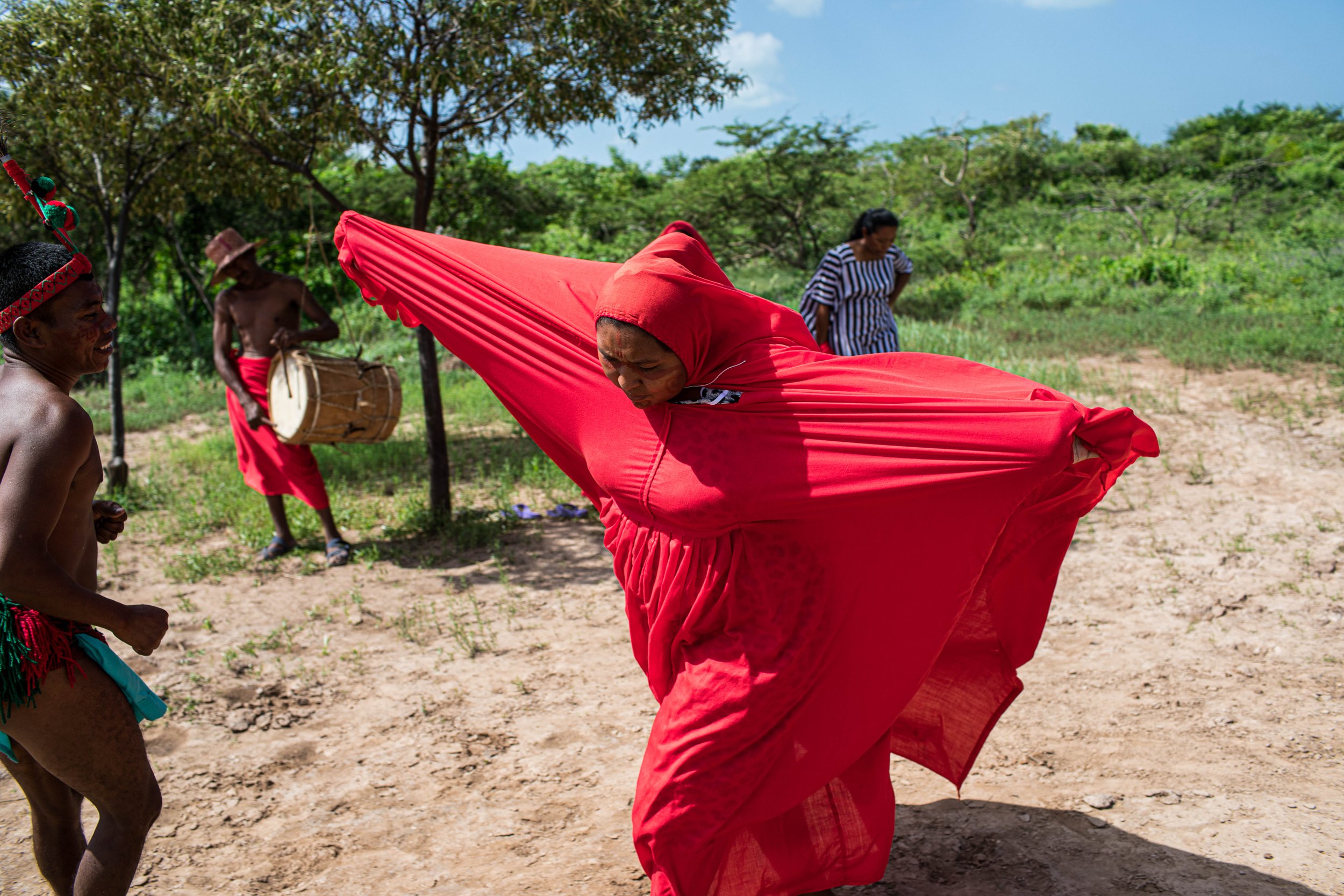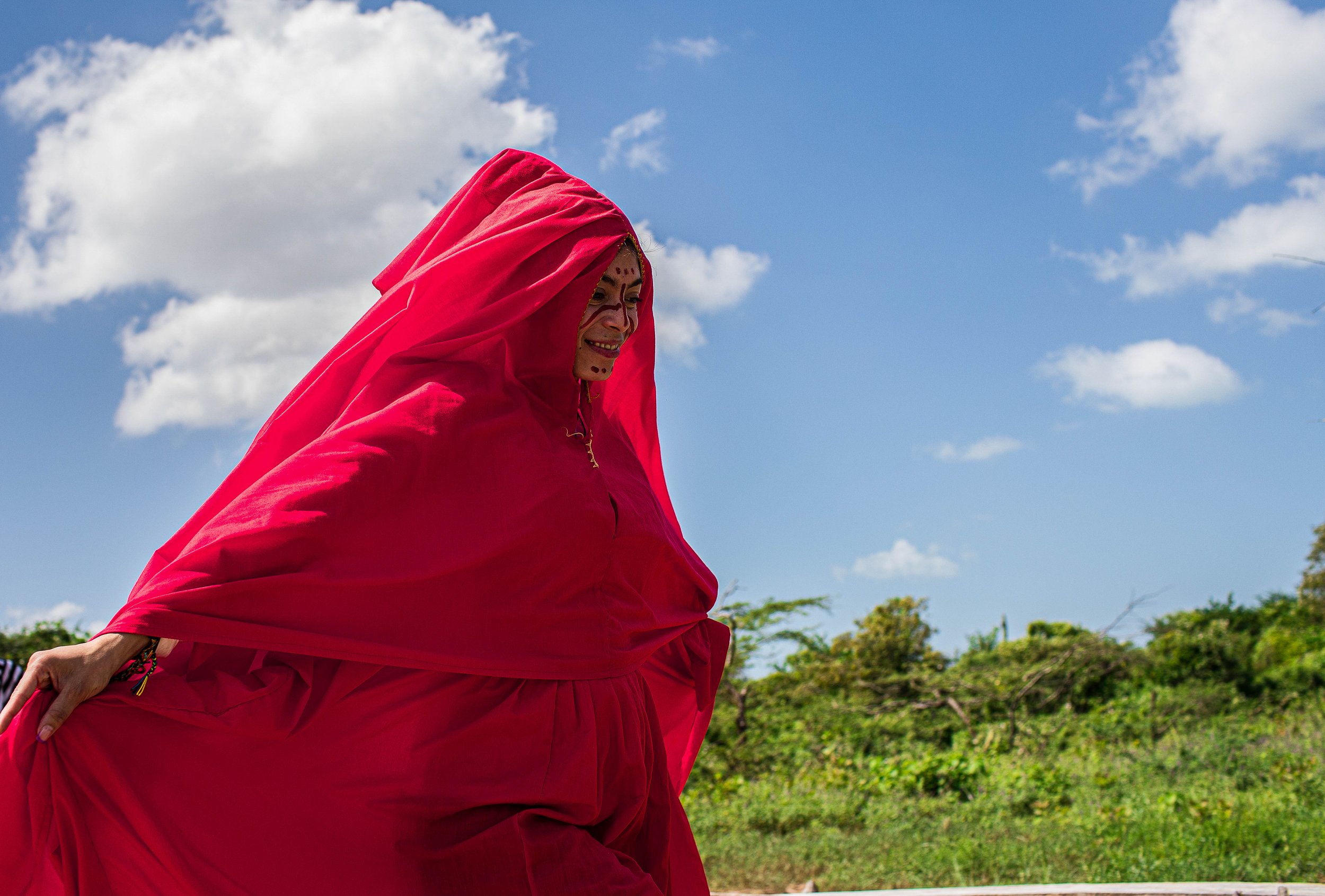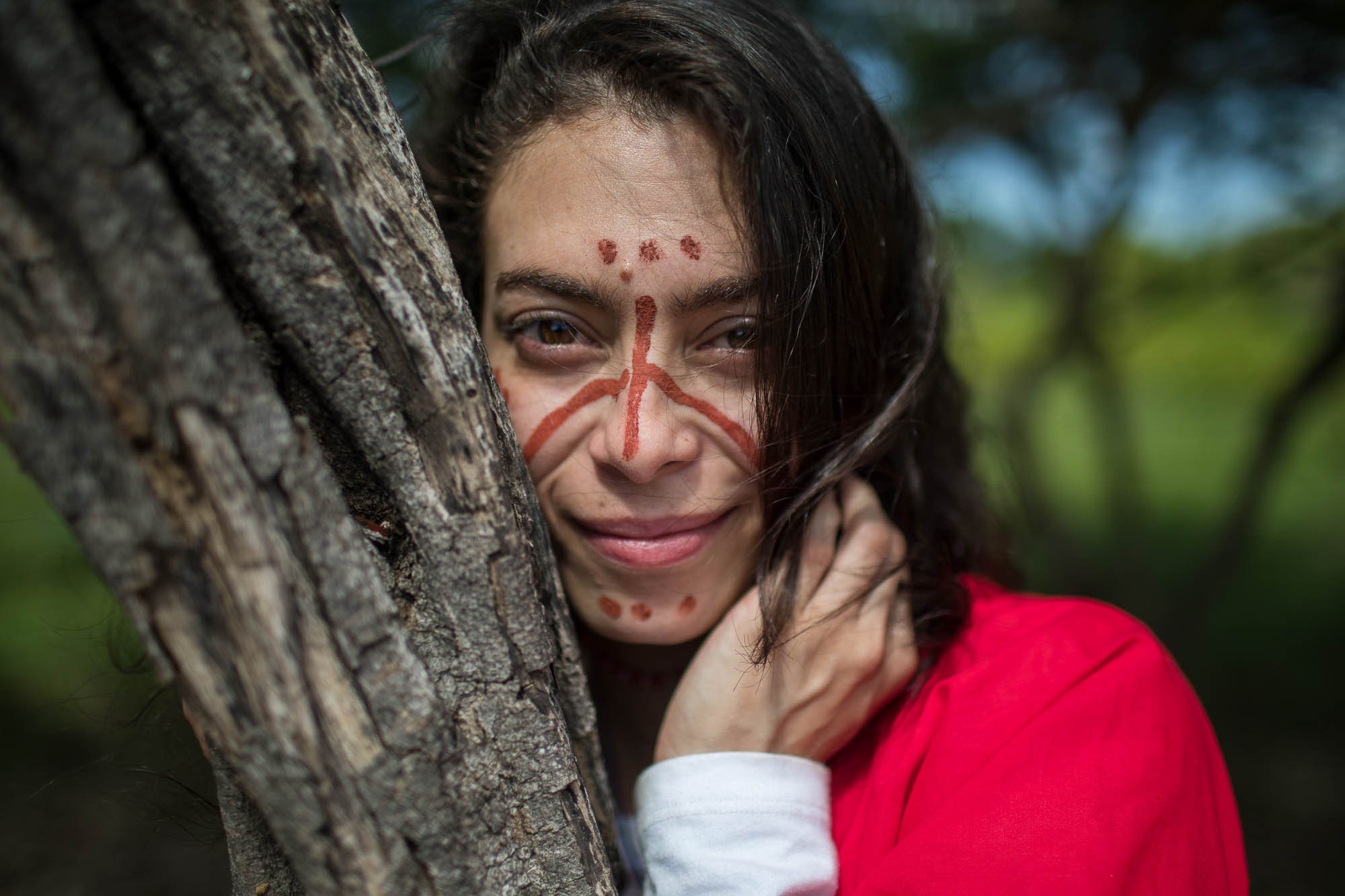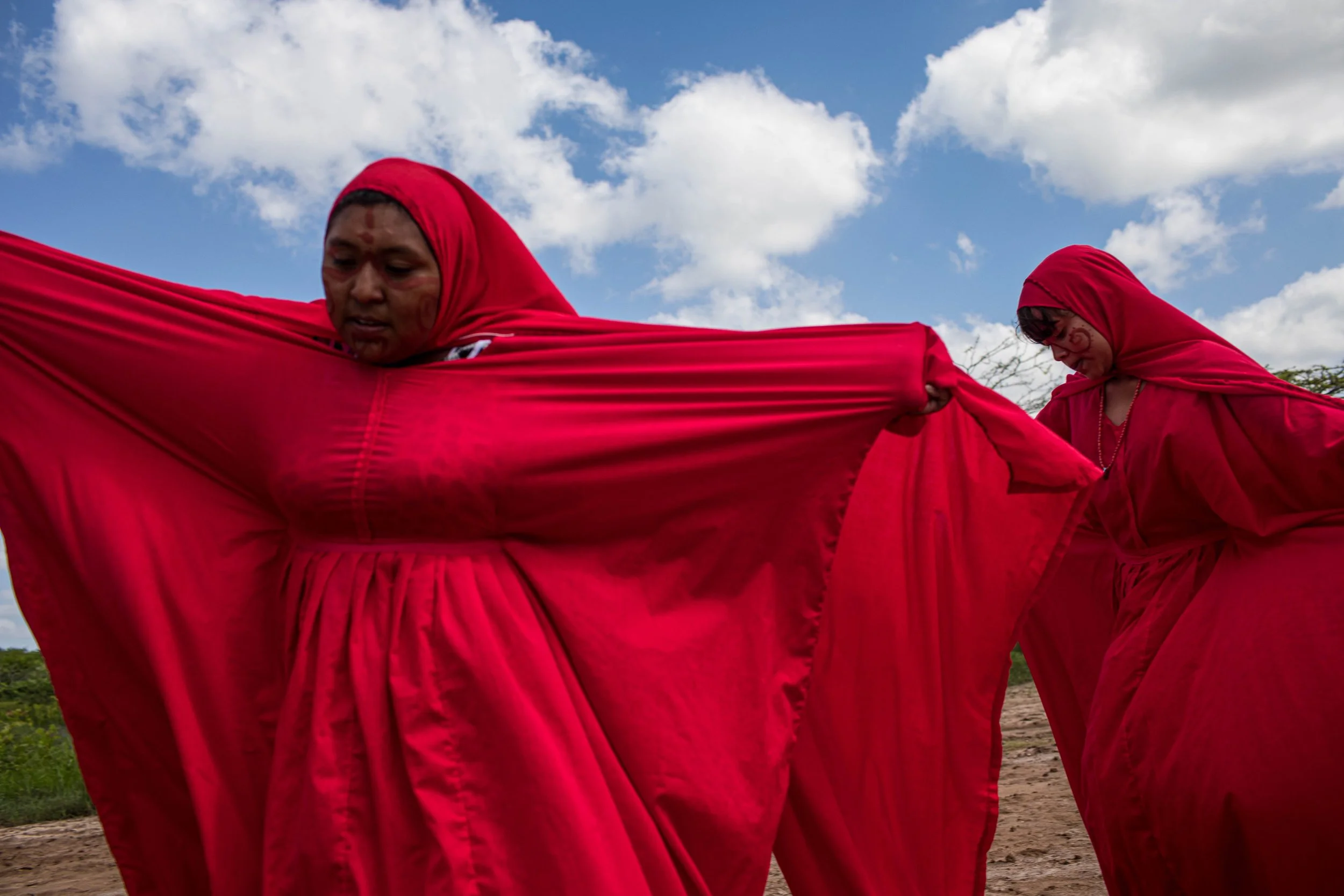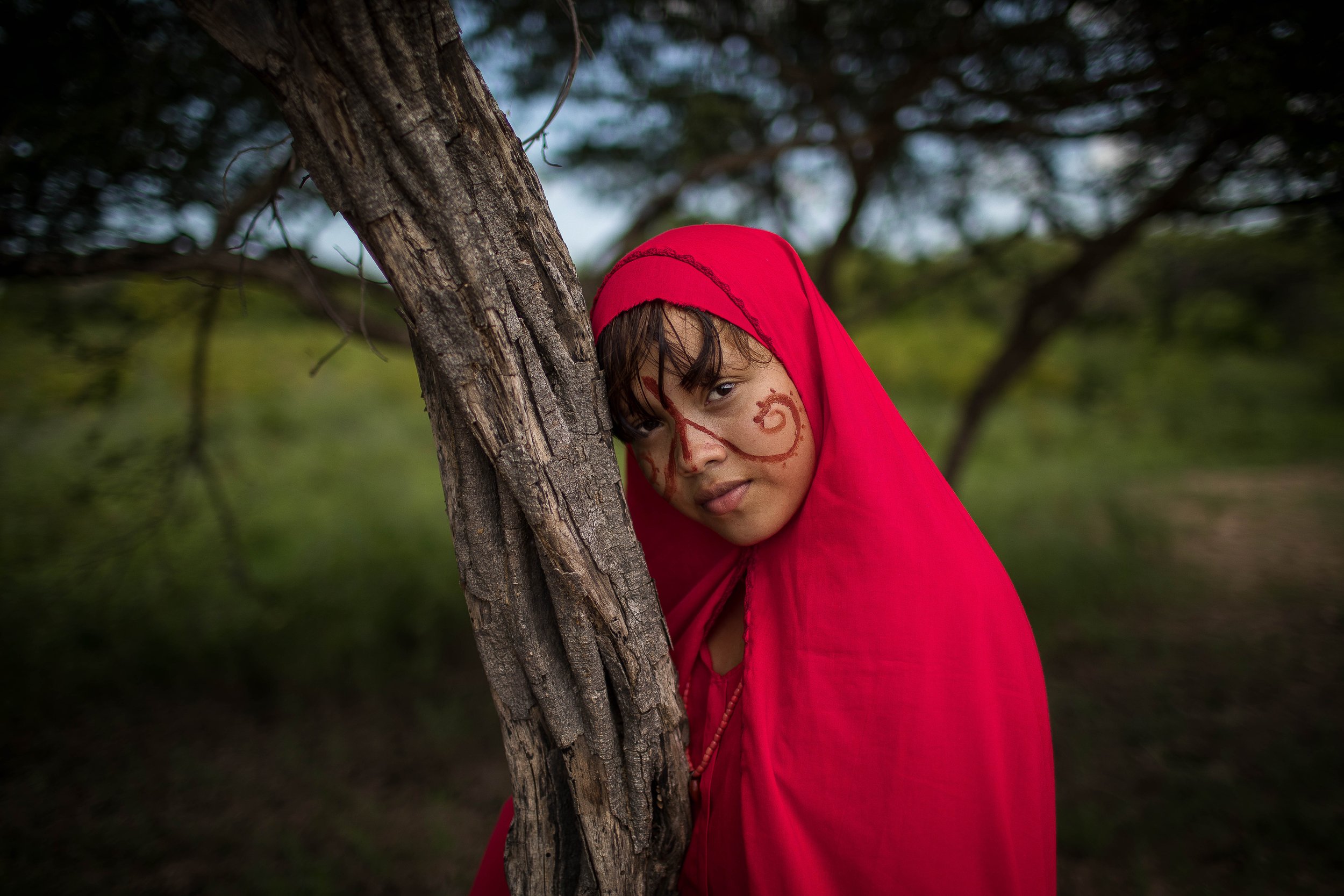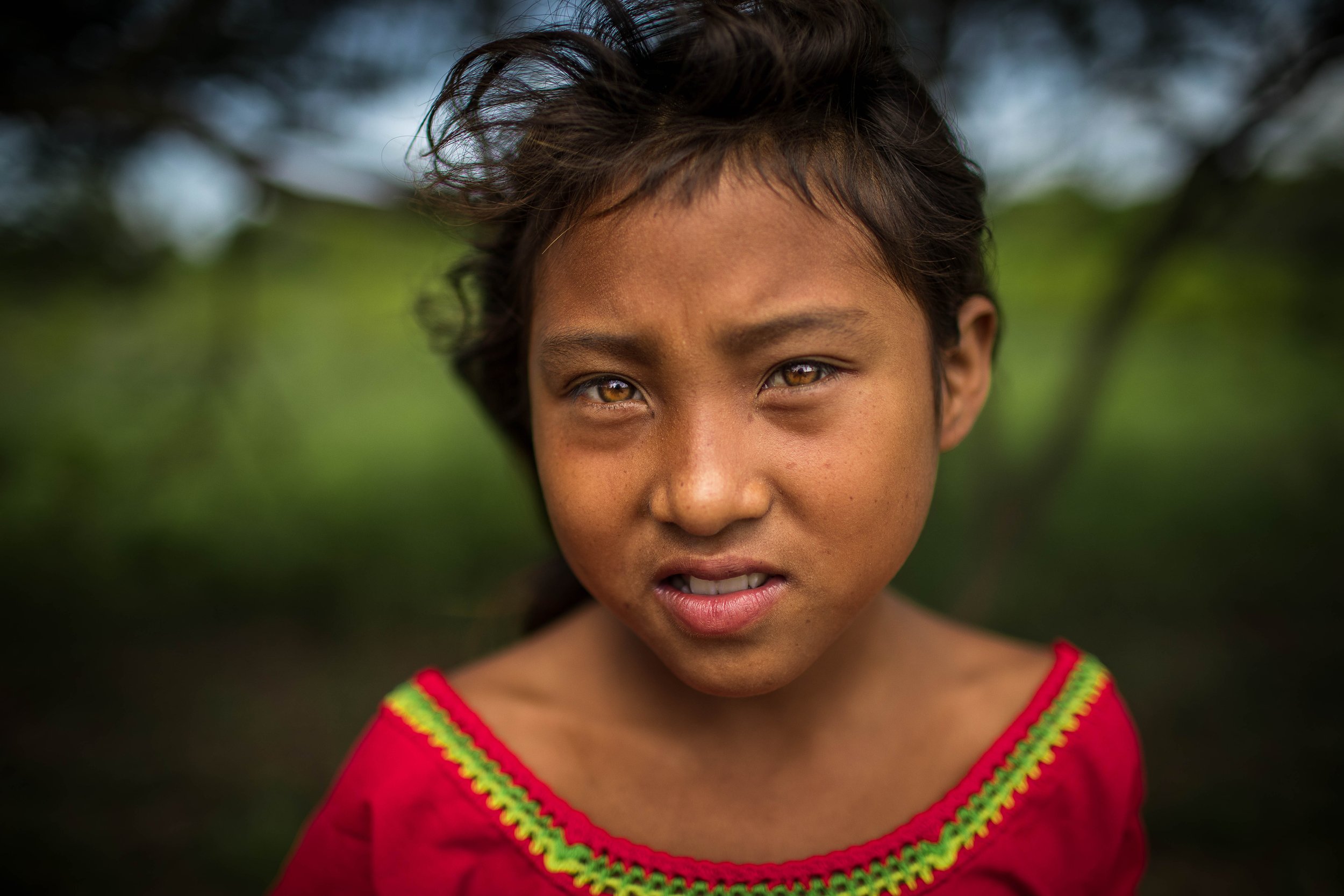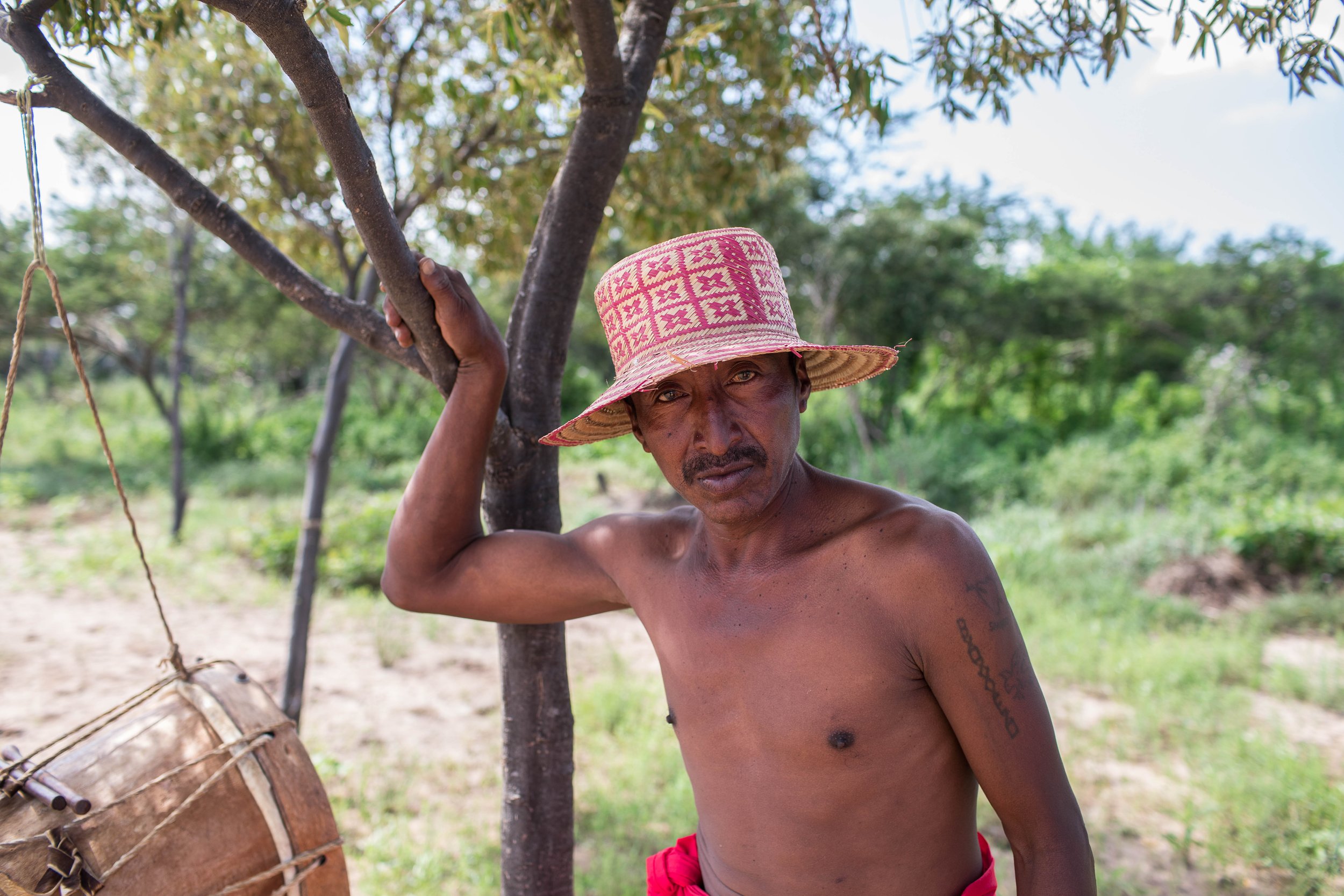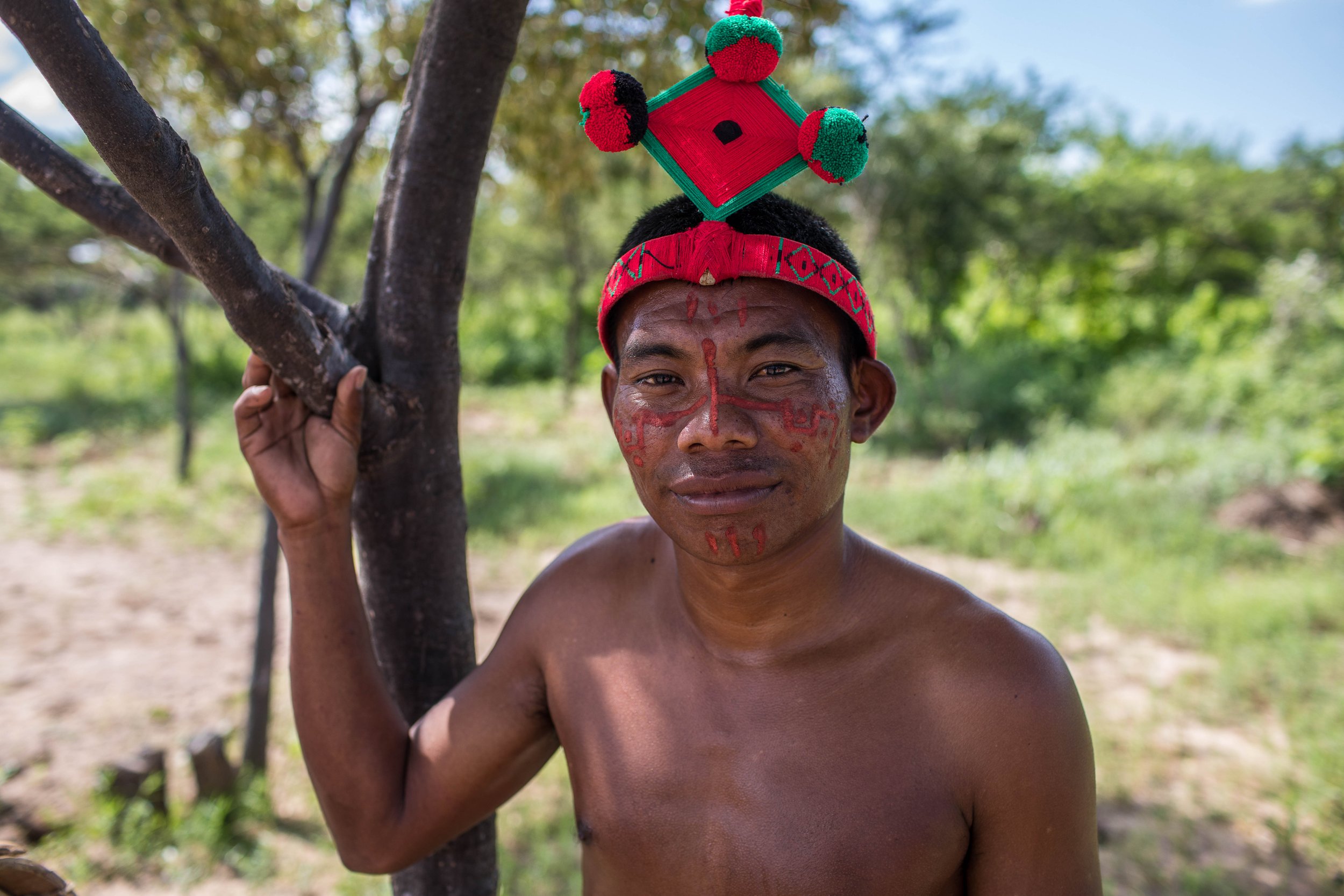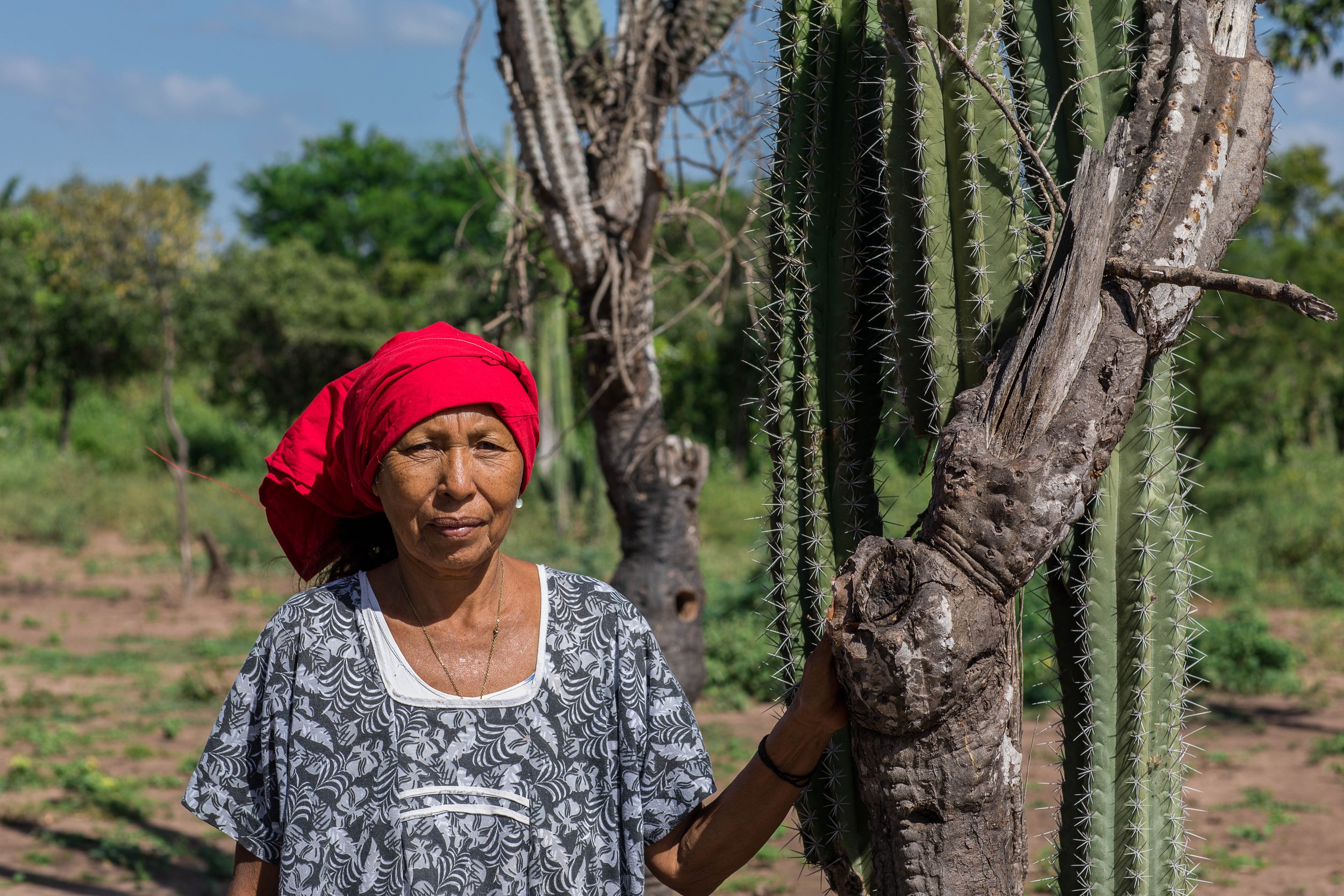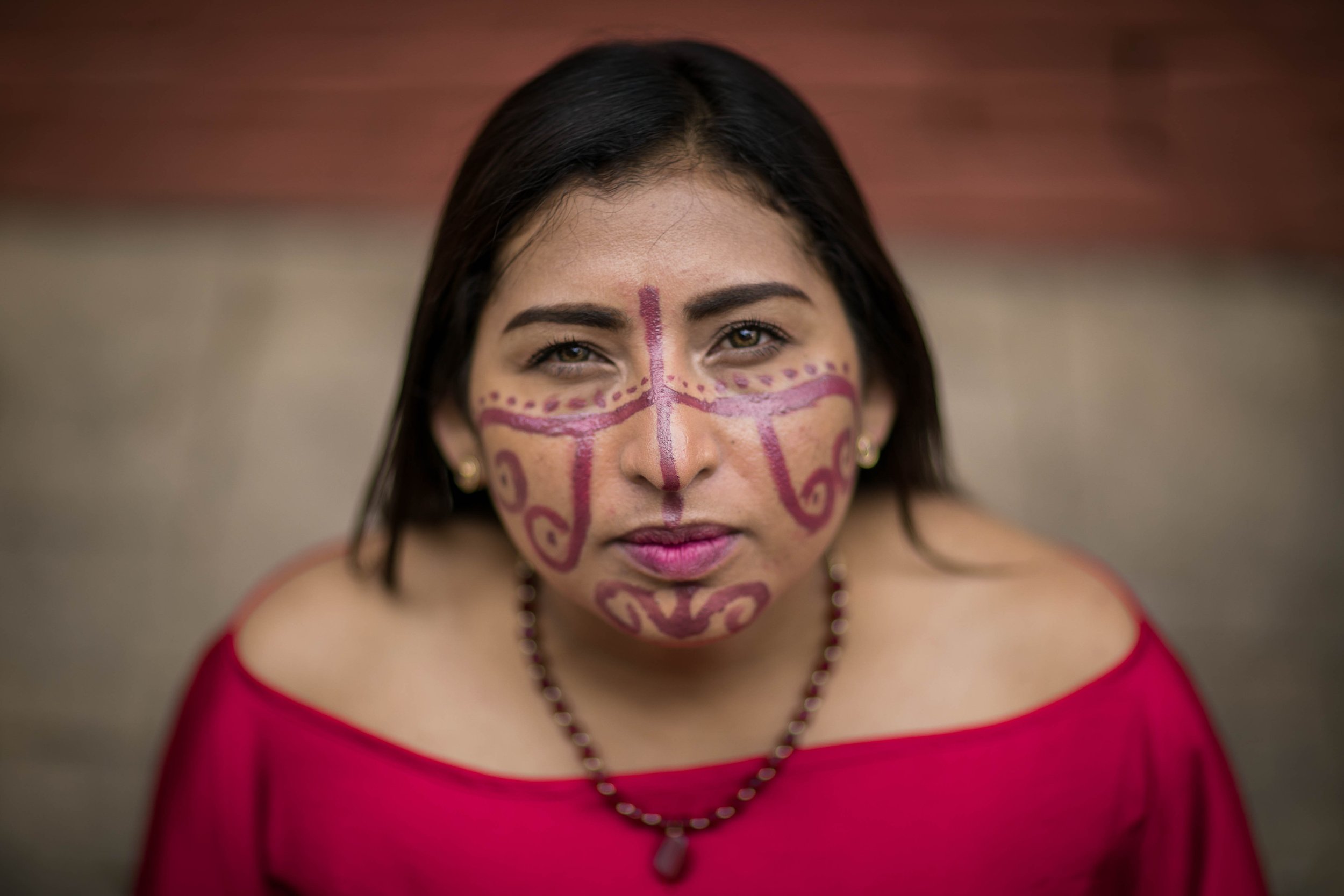The Wayuu, the indigenous people of Northern Colombia and Venezuela, have a saying moulded by the centuries of hardship they have endured:
“It is only from strong sunlight and harsh rains, that a seed can sprout.”
It is through that resilient spirit that the Wayuu confront a devastating
malnutrition crisis,
Dubbed the land of contrasts by its inhabitants, La Guajira, a state in northeastern Colombia, boasts large expanses of desert alongside breathtaking dune-lined coasts. But it has earned a reputation as a region left behind in the dust: a lack of sufficient food, water, and access to health services, along with high poverty rates, complicated by a humanitarian crisis in neighboring Venezuela, pervasive government corruption and mismanagement, and climate change, have contributed to high levels of malnutrition in La Guajira, especially among rural indigenous communities. In this context, the Covid-19 pandemic not only posed another threat to the health of an already struggling population, but also has economic impacts that may deepen food insecurity and increase challenges in accessing water, healthcare, and education.
In La Guajira, malnutrition claims the life of one in every 10 children younger than the age of five. Here, more children than anywhere else in the country die of malnutrition or causes associated with malnutrition, and at six times the national rate, according to data reported by Colombia’s Ministry of Health. Since 2016, a child under the age of five dies of malnutrition in La Guajira on average about once a week. In 2019, La Guajira accounted for over one fifth of deaths due to malnutrition in children under five in Colombia, despite having roughly seven percent of the country’s population. Many more deaths, occurring in homes rather than hospitals, go unreported. And children who survive suffer lasting consequences for their health and development.
Colombia’s government has an obligation to ensure that all people have an adequate standard of living, without discrimination. That includes, at a minimum, access to adequate food, safe and affordable water, accessible and affordable health services, and other essentials for a life with dignity. It is also obligated to address general conditions — like those present in La Guajira — that prevent people from enjoying these rights. Despite government initiatives in recent years aimed at addressing the crisis in La Guajira in response to the courts’ orders, my research shows that the government has made limited, if any, progress in ensuring these rights for the Wayuu in La Guajira.
